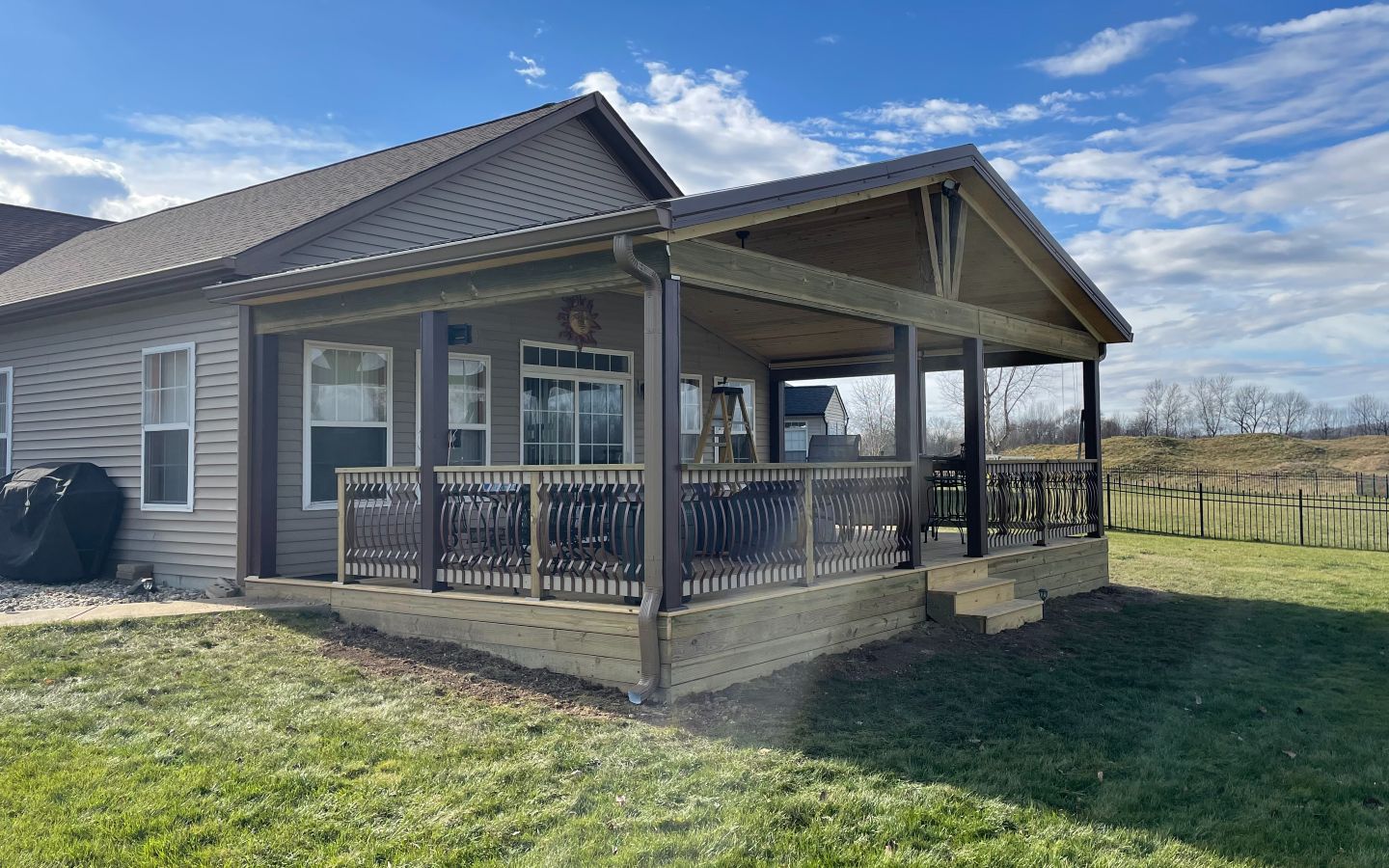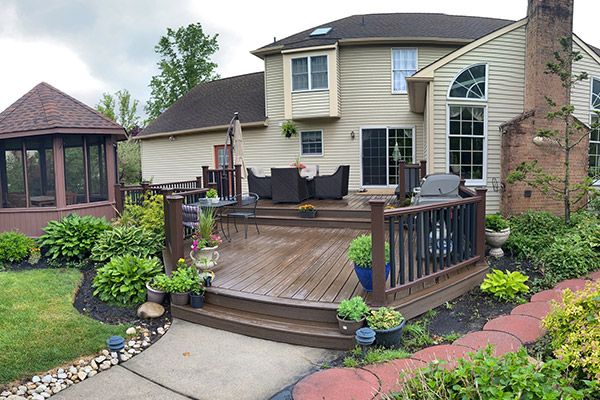Discovering Various Types and Advantages of Deck: A Comprehensive Guide
The outdoor deck is more than just an extension of one's living room; it's a testament to personal design, a place for social celebrations, and a shelter to loosen up. The selection of outdoor decking product substantially influences these elements, with choices varying from the classic allure of wood to the practicality of composite, and the sturdiness of light weight aluminum. Comprehending the subtleties of these products is essential, so allow's start our expedition, one deck kind at a time.
Understanding the Essentials of Decking Product
Decking product acts as the backbone of any type of deck job, determining the total aesthetics, sturdiness, and capability of the end product. The market uses a large series of materials, each with special features suited to numerous style choices and environmental problems. The option includes all-natural timber, composite, plastic, aluminium, and also concrete. Wood, being the standard selection, provides a timeless, classic allure. Compound, a blend of wood and plastic, provides wood-like looks with less maintenance. Plastic and aluminium provide modern-day, minimalistic options, while concrete is favored for its unrivaled sturdiness. The choice of product considerably influences the deck's life-span, maintenance needs, and resistance to aspects. As a result, comprehending the basics of outdoor decking material is critical for an effective deck project.
Advantages and Drawbacks of Wood Decks
In examining deck kinds, comprehending the advantages and disadvantages of timber decks becomes important. This includes considering elements such as the kind of timber selected and its effect on the deck's efficiency. The succeeding discussion will certainly check out these factors thoroughly to provide a detailed sight of the benefits and drawbacks connected with timber decks.

Timber Deck: Pros & Cons
The beauty of wood decks can not be overemphasized. They exude a timeless charm and warm aesthetic that lots of home owners discover tempting. This all-natural material is functional, permitting for a variety of style opportunities, and can supply an outstanding roi.
However, timber decks likewise come with particular disadvantages. Its durability can be less than various other decking materials, particularly if not properly cared for.
Picking Your Timber Kind

Exploring the Benefits of Composite Decking
Transforming attention to composite decking, it uses unique benefits. Its longevity exceeds standard timber in rough weather conditions, decreasing the demand for constant upkeep. Additionally, it provides a pleasing visual allure with variable design choices.
Compound Decking Durability Perks
In spite of the variety of outdoor decking choices readily available in the market, composite decking stands out for its longevity. This type of outdoor decking, made from a mix of timber and plastic, offers a resilient, durable platform immune to components that commonly break down various other materials. In recap, the longevity benefits of composite outdoor decking provide a lasting, affordable remedy for outside living areas.
Maintenance of Composite Decks
In enhancement to resilience, composite decking flaunts a major advantage in terms of maintenance. Unlike typical timber decks, composite decks are not prone to rot, warp, or insect damages, hence drastically reducing the need for regular repairs and substitutes. The low-maintenance nature of composite decks not just provides ease of upkeep yet also adds to their long-lasting cost-effectiveness.
Visual Appeal and Variability

The Rising Appeal of Aluminum Decks: Why Choose Them?
As the demand for resilient and low-maintenance decking surges, aluminum decks are significantly coming to be the best choice for many homeowners and home builders. These decks, made from a lightweight yet sturdy metal, provide numerous advantages over typical wood or composite decks. To begin, light weight aluminum is naturally resistant to the components, meaning it will not warp, crack, or discolor with time. This makes it a cost-efficient option in the future. In addition, its non-porous surface area avoids the growth of fungi, bugs, or molds, guaranteeing a clean and healthy and balanced exterior space. Aluminum decks are additionally eco-friendly, as they are frequently made from recycled products and can be reused again at the end of their life expectancy. Their smooth and modern-day visual appeal fits well into modern home styles.
Maintenance Tips for Different Decking Materials
All-natural timber decks need routine staining or securing to avoid weather condition damages, while composite decks require routine cleaning with soap and water to remove discolorations and particles. Understanding these maintenance needs is essential for deck owners to optimize their financial investment and keep their decks looking their finest for years to come.
Variables to Consider When Choosing Your Deck Kind
Composite decks stand up to moisture well, making them perfect for rainy or damp areas. While some may desire a luxurious, exotic timber deck, spending plan restrictions may demand an extra economical choice like pressure-treated timber. Hence, environment, way of life, maintenance, and cost are essential considerations in deck option.
Conclusion
To conclude, outdoor decking products significantly vary, each offering distinct advantages that cater to different house owner needs. Timber decks bewitch with all-natural appeal, while composite and aluminum ranges use toughness and reduced maintenance. Deck Builders Near Me. The finest choice depends on specific lifestyle, environment, and budget. Prior to committing to a particular deck type, property owners should very carefully consider the advantages, disadvantages, and upkeep requirements of each material.
In evaluating deck kinds, comprehending the pros and disadvantages of wood decks comes to be vital.Regardless weblink of the plethora of decking alternatives available in the market, composite decking stands out for its toughness. Unlike standard wood decks, composite decks are not vulnerable to rot, warp, or insect damage, hence substantially lowering the demand for regular repair work and substitutes. These decks, made from a light-weight yet sturdy metal, use numerous benefits over traditional timber or composite decks. Natural wood decks need routine securing or tarnishing to stop weather damages, while composite decks need routine cleaning go to these guys with soap and water to remove stains and debris.